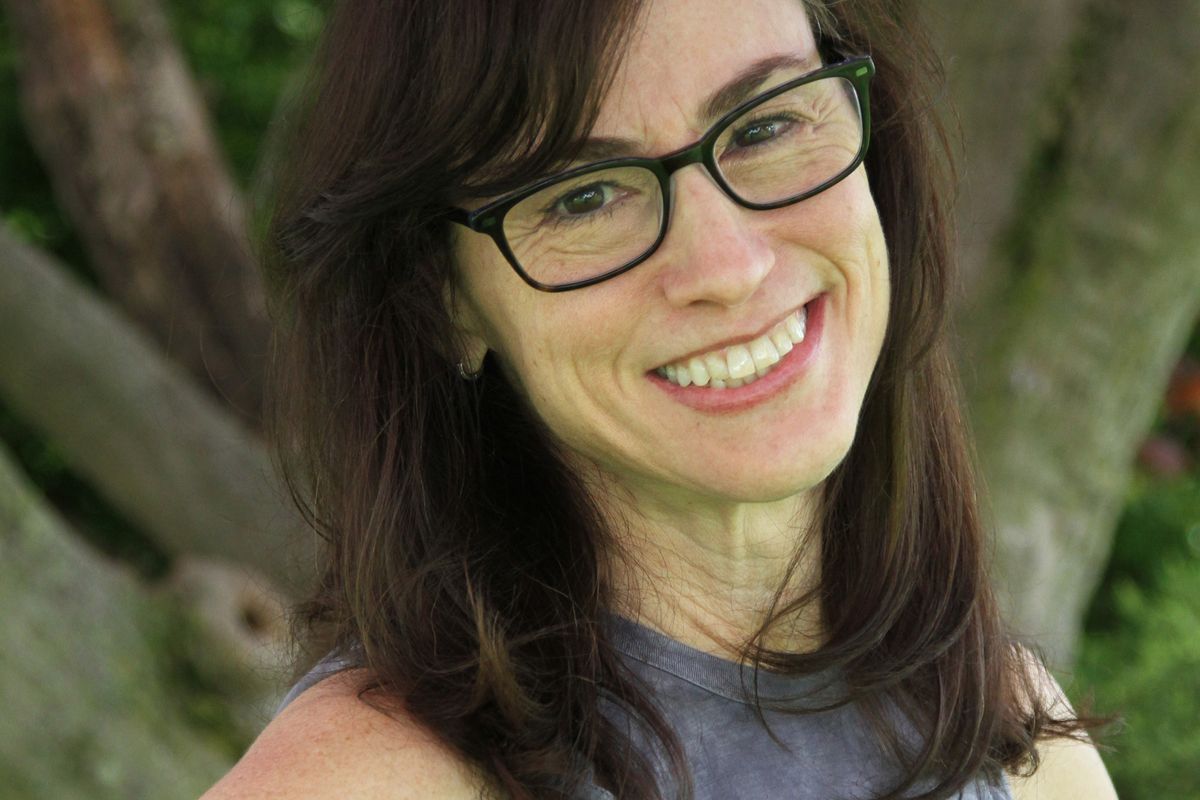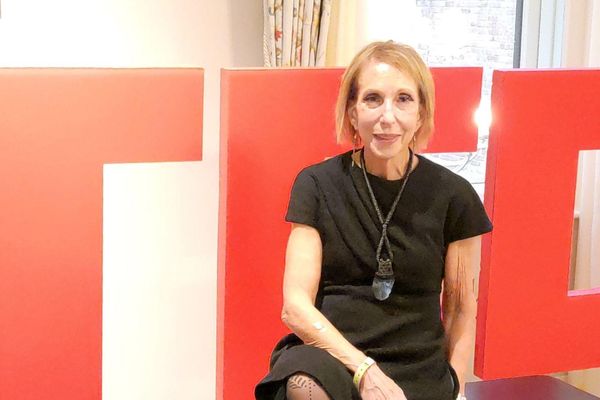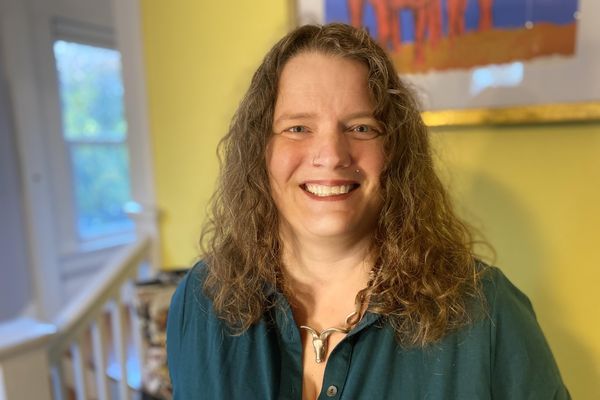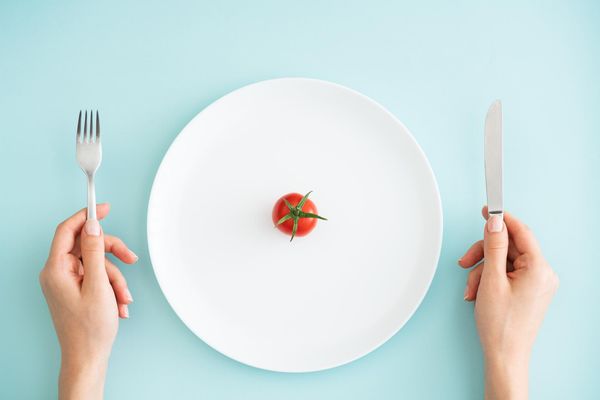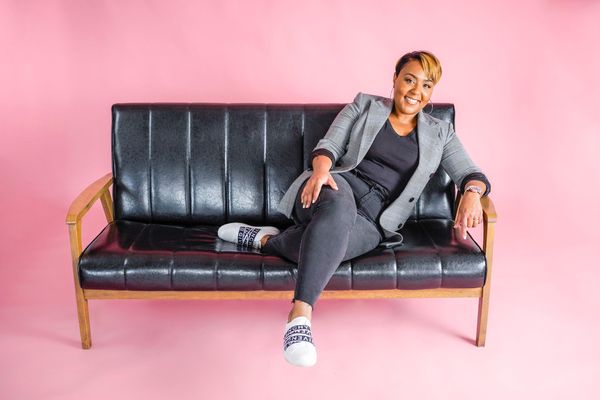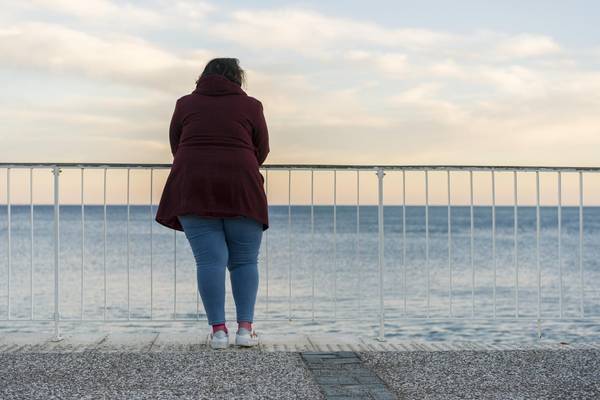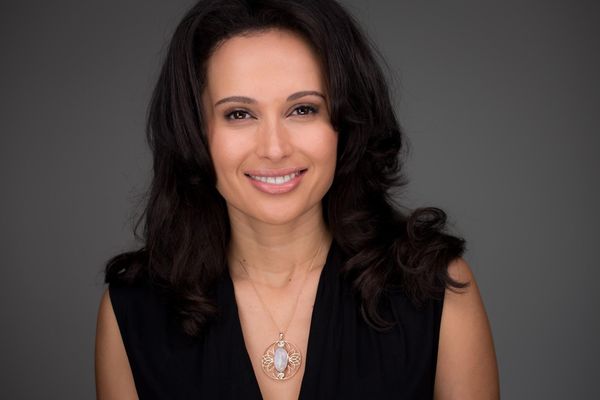Nearly every day, from the age of 9 until I was nearly 40, I stuffed food in my mouth like I was in an eating contest.
I devoured beyond the point of fullness. I kept eating because there was a burning desire inside me that demanded I put more food in my mouth.
I ate food out of the freezer, from the trash and off other people's plates in the sink. I ate burnt food, and — perhaps my most embarrassing moment — I ate my 10-year old daughter's half-eaten slice of pizza out of the trash can at a school fair, trying to hide my compulsion from the friends and teachers all around me.
While eating breakfast, I'd be planning my morning snack. While eating my morning snack, I'd be thinking about lunch, afternoon snacks and dinner.
Hunger and satiety cues did not exist in my world. I didn't eat because I felt hungry or stop eating because I felt full. I ate a reasonable amount of food in front of family and friends, but when I was alone, I ate like there was no tomorrow. I never really thought about why, it was just my normal.
This was my life for three decades. Now, at age 52, I've realized I had an eating disorder for over half my life and had no clue there was a name for what I did with food. I thought I was simply a pig.
Psychologist and eating disorder coach Heidi J. Dalzell told me: "Eating disorders are not actually about food. Eating disorders are a misuse of food due to other reasons, usually emotions."
As I binged, I was completely unaware that I was eating because of emotional trauma from my childhood. My parents were not good at showing love. My mother often hid cookies, never telling me why. I was too young to understand that I used food as a coping mechanism, and that mechanism stayed in place for 30 years.
The food I consumed only made me feel better momentarily. It tasted delicious, which gave me comfort and a sense of love I desperately needed. But my repetitive emotional eating evolved into a second problem — a full-blown eating disorder.
Eventually, I went to therapy to get to the root of why I was a compulsive overeater and a binger. I started attending Overeaters Anonymous (OA) meetings and reading good books. I remember sitting in OA rooms, shocked that people of all different ages, sizes and shapes had the same obsession as I did. There was healing in knowing I wasn't alone.
I've now been in recovery for over 12 years. I still wonder — how could I not have known? How could a relatively intelligent, college-educated woman not know she had an eating disorder, a serious mental and physical illness?
One reason is that society didn't discuss eating disorders back in the '80s and '90s, not the way we do now. The first facility dedicated to the treatment of eating disorders only opened in 1985, and it focused mainly on treating anorexics. When Karen Carpenter died in 1983 as a side effect of anorexia, the tragedy brought attention to her particular illness. I was 15 at the time and bingeing regularly. Because what I was doing was the polar opposite of starving myself, it never occurred to me that there might be a connection.
The complexity of eating disorders has long been misunderstood, both by the general public and the mental health profession. It wasn't until 1987 that the Diagnostic and Statistical Manual of Mental Disorders listed bulimia as a separate eating disorder and not until 2013 that binge eating disorder (BED) was recognized as its own condition.
While I was in the throes of my eating disorder, I felt like I was the only one on the planet who was obsessed with food. It blew my mind when I discovered websites, like OA, that were devoted to my experiences. I took solace in learning I wasn't the only one who ate enormous amounts of food in a short amount of time.
For most of my disordered-eating life, I couldn't plug into the abundant information and support that now exists on the internet. While social media can promote diet culture and unhealthy views about weight, it also increases eating disorder awareness. Social media is a lifeline for people like me who are seeking help, giving us access to vital networks and advice.
Social media shows us how many people share our struggles and provides role models, like Demi Lovato, who have recovered from anorexia, bulimia and BED. It also offered me a way to give back, once I recovered, by supporting others.
Recovery for me was a marathon, not a sprint. We all want things fixed in a hot minute, but real recovery from an eating disorder takes time, and I had to dig into my past with the help of a professional. Painful things happened to me that I'd squashed down with food and didn't want to face.
When I did, I learned that controlling food was a cry for help. I came to understand that having an eating disorder was not my fault. It's a treatable illness, and while recovery is a challenge, the journey is well worth it. It may have taken me 30 years to grasp the reality of my mental illness, but I'm on the other side. I'm not a slave to food anymore.
Ronni Robinson lives in Pennsylvania. She has mixed emotions about recently becoming an empty nester. She is a three-time Ironman finisher, a certified spin instructor and the author of a memoir, Out of the Pantry: A Disordered Eating Journey. https://www.ronnirobinson.com/.- I Had An Eating Disorder for 20 Years Before I Knew Anything Was Wrong - HealthyWomen ›
- I Struggled With Obesity. Then I Lost the Weight … and Nearly Died From Anorexia and Bulimia. - HealthyWomen ›
- Want Fries — or Feelings — With That? - HealthyWomen ›
- I Needed Help to Recover from My Eating Disorder - HealthyWomen ›

